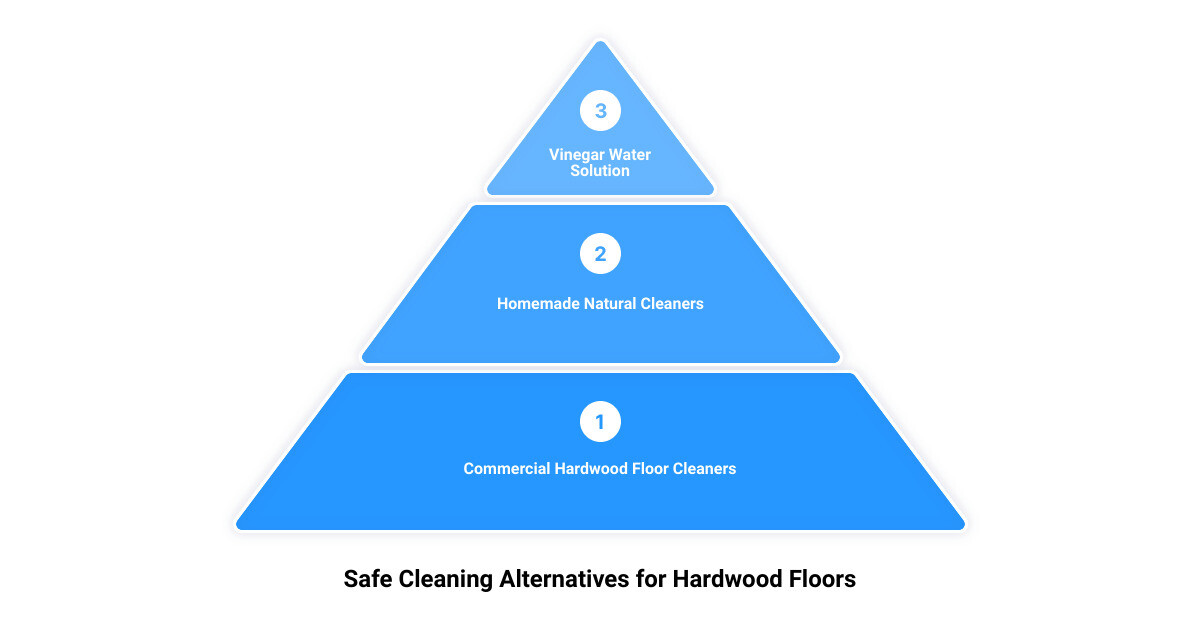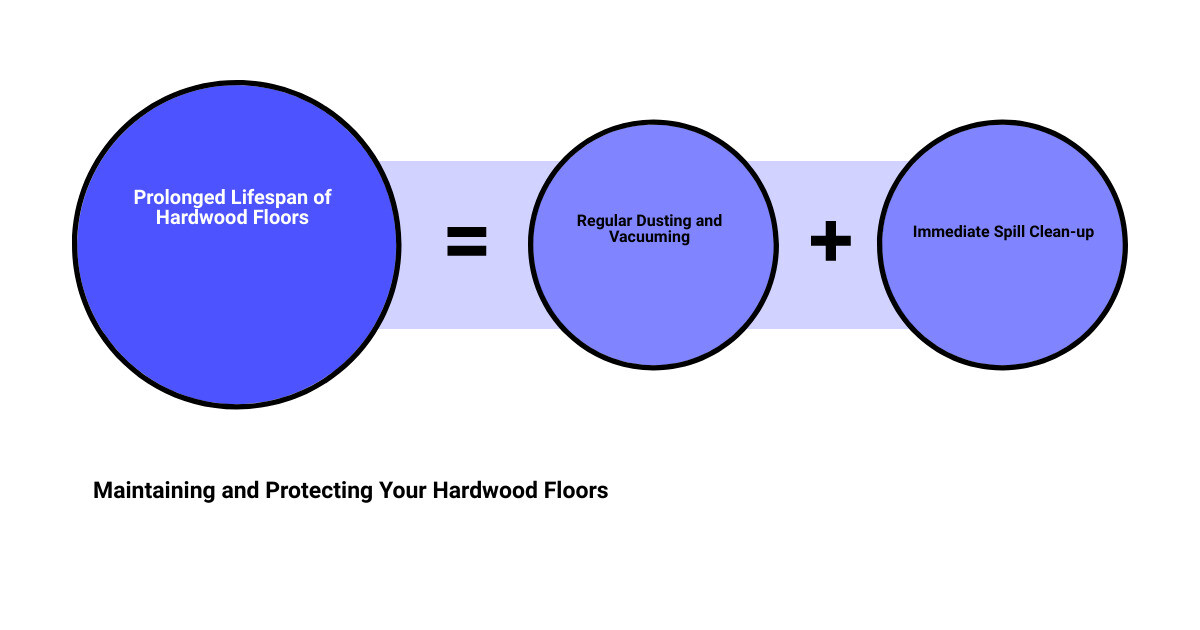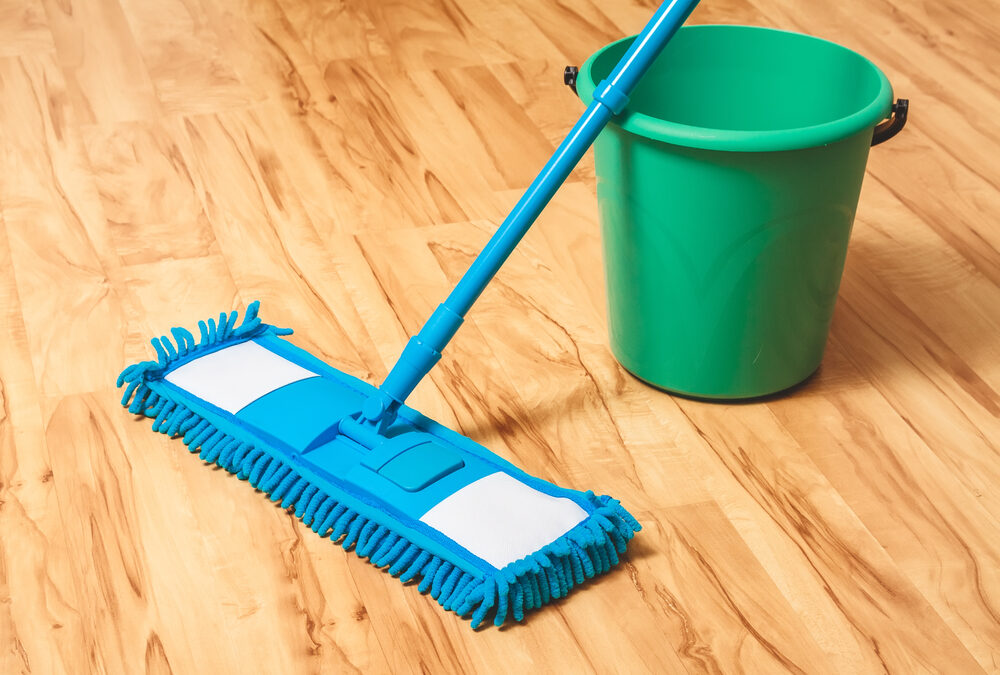Introduction: The Importance of Proper Hardwood Floor Cleaning
If the eyes are the windows to the soul, then your hardwood floors are the welcome mat to the soul of your home. Beautiful, well-maintained hardwood floors not only enhance the aesthetic appeal of your San Diego home but also add significant value. However, the key to keeping your hardwood floors in pristine condition lies in the proper cleaning and maintenance techniques.
Regular hardwood floor cleaning is not just about maintaining appearances. It prolongs the lifespan of your floors, preventing costly repairs or replacements due to scratches, dents, and dullness caused by daily wear and tear. Moreover, clean hardwood floors contribute to a healthier living environment by reducing allergens like dust, pollen, and pet dander.
But cleaning hardwood floors isn’t as straightforward as it sounds. Using the wrong cleaning products can damage the surface of your hardwood floors, stripping off the protective coating and dulling their shine. Among the countless cleaning solutions available, one that sparks a lot of debates is vinegar water.
In this guide, we’ll dive deep into the right way to clean and maintain your hardwood floors, focusing on the use of vinegar water. We’ll also explore other safe cleaning alternatives and share valuable tips to keep your hardwood floors looking their best. Remember, when it comes to hardwood floor cleaning, knowledge is power. The more you know, the better you can protect and prolong the life of your beautiful hardwood floors. Stay tuned.
Understanding Hardwood Floors: Sealed vs. Unsealed
Before you start splashing vinegar water on your hardwood floors, there’s one crucial factor you should consider: is your hardwood floor sealed or unsealed? This isn’t just a trivial classification, but a deciding factor that significantly influences the cleaning methods and products you should use.
Sealed hardwood floors are characterized by a protective layer of polyurethane that gives them a glossy finish. This protective sealant acts as a barrier, preventing liquids, including water and vinegar water, from penetrating the wood. As a result, sealed floors are less susceptible to damage from moisture and can tolerate a wider range of cleaning solutions. To check if your floor is sealed, simply drop a tiny amount of water onto the floor; if the water bead sits on the surface, your floor is sealed.
On the flip side, unsealed hardwood floors do not have this protective layer. These floors often have a matte finish and are more vulnerable to water damage. When you perform the water droplet test and the water is absorbed quickly, it’s likely your floor is unsealed. In such cases, it’s vital to avoid using large amounts of water or other liquid cleaners, including vinegar water, as these can penetrate the wood and cause damage.
Whether you have sealed or unsealed hardwood floors in your home, understanding their characteristics is the first step to maintaining their beauty and extending their lifespan. Now, armed with this knowledge, let’s delve into the vinegar water cleaning method and its suitability for your hardwood floors.
The Controversy: To Use or Not to Use Vinegar Water on Hardwood Floors
The mention of vinegar water as a hardwood floor cleaner often sparks a heated debate among homeowners and cleaning professionals. It’s akin to a culinary debate over whether pineapple belongs on pizza. The major bone of contention lies in the unique properties of both vinegar and hardwood floors.
The Acidic Nature of Vinegar: Boon or Bane for Hardwood Floors?
Vinegar, a powerful natural cleaner, owes its strength to its high acetic acid content. This acidic property gives vinegar its antimicrobial prowess, making it a reliable ally against bacteria and germs. However, the same acidity also raises eyebrows when it comes to hardwood floors.
Hardwood floors require a pH-neutral or nearly neutral cleaner. Naturally, this implies that vinegar, as an acid, might not be suitable for hardwood floors. But that’s not the complete picture. When vinegar is mixed with water, its acidity is significantly reduced, transforming it into an effective, streak-free cleaning solution that cuts through dirt and grime.
However, a word of caution: vinegar should only be used on sealed or pre-fabricated hardwood floors. If your floors are waxed or unfinished, vinegar could potentially cause damage. Therefore, it is always advised to test the vinegar solution in an inconspicuous spot before applying it to the entire floor.
The Pros and Cons of Vinegar Water Cleaning
Using vinegar to clean hardwood floors is like swinging a double-edged sword. On one hand, vinegar is a safe, affordable, and effective cleaning solution. It breaks down grime and dirt that gradually dull your hardwood floors. More importantly, as a natural cleaner, it reduces your exposure to harsh chemicals.
On the flip side, overuse of vinegar or using it undiluted can indeed damage your hardwood floors. If not properly diluted, vinegar can break down the finish on the surface of your floor, reducing the shine and leaving a dull appearance over time. Additionally, using a large amount of water, a likely outcome of using vinegar water to clean floors, can cause swelling and discoloration.
In a nutshell, understanding the properties of vinegar and using it correctly is key to cleaning hardwood floors with vinegar water safely. Yes, the controversy surrounding vinegar as a cleaning agent for hardwood floors is not unfounded. However, with the right knowledge and precautions, you can harness the cleaning power of vinegar, keeping your hardwood floors shining like new.
The Right Way to Use Vinegar Water on Hardwood Floors
Understanding how to use vinegar water on hardwood floors is essential in maintaining their luster and longevity. This natural cleaning combination can be a game-changer if used correctly. However, the key lies in the proper preparation of the solution, the application technique, and the drying process.
Preparing the Vinegar Water Solution
To create your vinegar water cleaning solution, start by mixing ½ cup of vinegar with one gallon of hot water. This ratio is essential in keeping the vinegar’s acidity significantly reduced, making it safe for your hardwood floors. For a pleasant aroma, you could also add a few drops of essential oils like lemon or clove to the solution.
Applying the Vinegar Water Solution
Once your vinegar water solution is prepared, it’s time for application. Begin by sweeping or vacuuming your floors thoroughly to remove any loose dirt or debris. This step is paramount to prevent scratches and damage during the cleaning process.
For the actual cleaning, you can employ one of the three methods:
- Hand Cleaning with a Bucket and Cloth: This method is excellent for when the floors need a deep cleaning. Simply dip the cloth in your solution and wring it out well.
- Refillable Spray Mop: A refillable spray mop is ideal for daily touch-ups and regular floor cleaning. Make sure to rinse the microfiber pad frequently to prevent streaking.
- Spray Bottle and Microfiber Mop: For those who prefer a spray bottle and microfiber mop, this method works great. Simply spray the solution on the floor and wipe it with the mop.
Drying and Buffing the Floor
The final step in the process is allowing the floors to dry. Remember, hardwood floors and excessive moisture don’t mix well. Hence, it’s crucial to let your floors air-dry completely before walking on them. You can speed up the drying process by turning on the ceiling fans or adding a circulating fan.
Once the floor is dry, buff it with a clean, dry microfiber cloth. This will enhance the shine and remove any remaining solution residue.
By following these steps diligently, you can effectively clean your hardwood floors using vinegar water solution without causing any harm. The result? A refreshed, clean, and shiny floor that adds to the charm and beauty of your home.

Other Safe Cleaning Alternatives for Hardwood Floors
While vinegar water is a tried-and-true method for cleaning hardwood floors, it’s not the only game in town. Depending on your preferences and needs, you might be interested in exploring other safe cleaning alternatives. Let’s dive into the world of commercial hardwood floor cleaners and homemade natural cleaners.
Commercial Hardwood Floor Cleaners
Commercial hardwood floor cleaners offer a convenient, ready-to-use solution for busy homeowners. They are expertly formulated to clean effectively while preserving the beauty of your floors. A popular choice is Bona Hardwood Floor Cleaner, a water-based formula that leaves no residue and is safe for kids and pets.
Another trusted option is Murphy Oil Soap, a plant-based cleaner that cuts through grime and restores the natural shine of hardwood floors. It’s biodegradable and devoid of harsh chemicals, providing a safe and green alternative.
For those who fancy the convenience of spray mops, method Squirt + Mop Hardwood Floor Cleaner is a great pick. This non-toxic, plant-based cleaner leaves a fresh almond scent, adding a pleasant touch to your cleaning routine.
Homemade Natural Cleaners
If you’re more into DIY solutions, homemade natural cleaners might be right up your alley. Baking soda, for instance, is a natural cleaning agent that’s safe for hardwood floors. This alkaline substance can neutralize acidic stains and cut through dirt. To use baking soda, mix a quarter cup of it with a gallon of warm water, and follow the same mopping method as with vinegar water.
Remember, when exploring different cleaning alternatives, always avoid products containing bleach, ammonia, or other harsh chemicals. These can strip the natural shine off your floors and potentially cause damage.
With the right cleaning product, be it vinegar water, a commercial cleaner, or a homemade solution, maintaining your hardwood floors becomes a simpler and more manageable task. The key is to find the solution that works best for you and your home, ensuring that your floors continue to shine and impress. In the next section, we’ll look at further tips to maintain and protect your hardwood floors.

Tips to Maintain and Protect Your Hardwood Floors
Maintaining the beauty and durability of your hardwood floors is not a one-time chore, but a lifestyle. By following these simple yet effective strategies, you can keep your floors looking their best for years to come.
Regular Dusting and Vacuuming
The first line of defense in protecting your hardwood floors is regular dusting and vacuuming. Dust and small particles of grit are like sandpaper, grinding away at your floor’s finish with each step taken. A daily sweep with a microfiber mop or cloth can go a long way in keeping your floors dust-free. For a more thorough clean, consider vacuuming at least once a week. However, be sure to use a vacuum that’s specifically designed for hardwood floors to avoid any scratching.
Immediate Spill Clean-up
Any liquid can be a potential enemy of your hardwood floor. So, when spills occur, it’s important to wipe them up immediately. Whether it’s water from a knocked-over glass or coffee from a toppled mug, prompt action can prevent the liquid from seeping into the wood and causing damage. Keep a soft, absorbent cloth handy for these moments. Remember, the key here is to blot, not rub, as rubbing can spread the spill and push it into the cracks of the wood.
Avoiding Damaging Practices
Some practices can cause unnecessary harm to your hardwood floors. For instance, wearing high heels or cleats can scratch or dent the surface. Similarly, dragging furniture across the floor can lead to unsightly scratches or gouges. To prevent this, consider using furniture pads under the legs of your tables, chairs, and other heavy items. Another damaging practice is the use of harsh chemicals. Avoid cleaners that contain ammonia, vinegar, or baking soda, which can dull or damage the finish.
And remember, while it may be tempting to use a steam cleaner for a deep clean, this can cause more harm than good. The excessive heat and moisture can lead to warping, cupping, or even cracking of your hardwood floors.
In conclusion, maintaining and protecting your hardwood floors doesn’t have to be a daunting task. With regular care and by avoiding damaging practices, you can ensure the longevity and beauty of your investment. Next, we’ll introduce how California Flooring & Design can be your partner in caring for your hardwood floors.
California Flooring & Design: Your Partner in Hardwood Floor Care
Just as a trusted friend would lend a helping hand in times of need, California Flooring & Design stands ready to assist you in maintaining the splendor and longevity of your hardwood floors. Our experts in hardwood floor care are renowned for their reliability, productivity, and responsiveness, always ready to provide high-quality services to San Diego homeowners.
Our expertise extends beyond just installation. We’re also proficient in the cleaning and restoration of existing hardwood floors. We understand your need to preserve the lustrous charm of your hardwood floors and enhance the overall value of your property. With our annual professional cleaning service, we can maintain the sheen and longevity of your floors, tackling even the toughest dirt and restoring your floor to its original condition.
Rest assured that we treat each floor as unique, requiring a personalized approach. When it comes to restoration, we possess the specialized knowledge needed to restore and refinish your hardwood floors, making them look as good as new. Plus, we offer a unique 5-year guarantee on our flooring products. This commitment provides you with peace of mind, knowing that your investment is protected and backed by a trusted partner.
Whether you need advice on the right cleaning solution or require professional cleaning and restoration services, we are here to help. We go beyond merely providing services. We strive to be your partner, committed to enhancing the value and beauty of your home through superior hardwood flooring services.
In conclusion, reviving your hardwood floors doesn’t have to be a solo project. With the right knowledge, tools, and a reliable partner like California Flooring & Design, you can keep your hardwood floors looking their best for years to come.
Conclusion: Reviving Your Hardwood Floors with Care and Knowledge
Breathing life back into your hardwood floors is a labor of love, but it doesn’t have to be a daunting task. With the proper knowledge of cleaning solutions, specifically vinegar water, and effective cleaning practices, you can maintain the luster and longevity of your hardwood floors.
Remember, it’s crucial to understand the finish of your floors before you embark on any cleaning endeavor. For sealed floors, a vinegar water solution can be a safe, natural, and effective cleaner when used correctly. It’s essential, however, to test this solution on a hidden part of the floor first to ensure it won’t cause any discoloration or damage.
Investing in proper equipment, such as a high-quality vacuum and a microfiber mop, can also make a significant difference in protecting your floors from scratches and accumulated dust and grime. Most importantly, regular cleaning and immediate spill cleanups are key to preventing unnecessary damage.
While vinegar water is a viable option for cleaning, you can also explore other safe cleaning alternatives. Commercial hardwood floor cleaners and other homemade natural cleaners can be effective and safe choices for your floors.
Taking care of your hardwood floors isn’t just about cleaning, it’s also about prevention. Regular dusting, avoiding damaging practices, and using floor protectors under furniture can go a long way in preserving your floors and prolonging their lifespan.
Finally, remember that you’re not alone in this journey. At California Flooring and Design, we’re here to provide top-notch hardwood flooring services and a 5-year guarantee on our products. We’re your partner in maintaining the beauty of your hardwood floors and ensuring they remain a treasured part of your San Diego home for years to come.
In conclusion, reviving your hardwood floors requires care and knowledge, but it’s a worthwhile endeavor. With the right practices and reliable support from professionals, you can ensure your hardwood floors continue to add warmth and elegance to your home.




